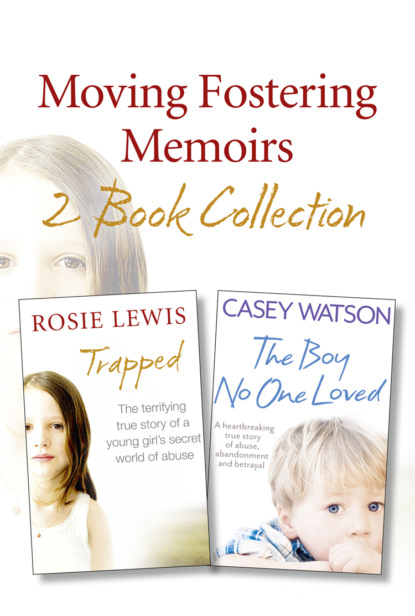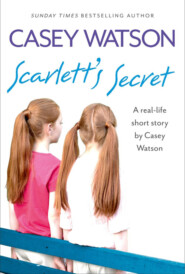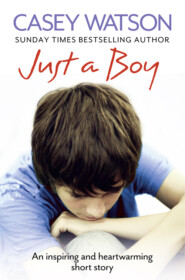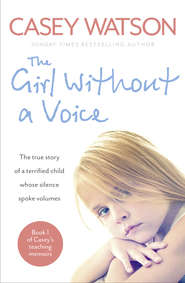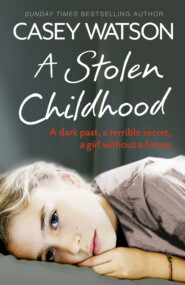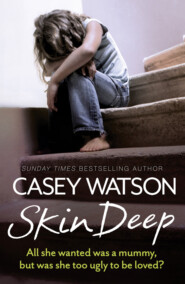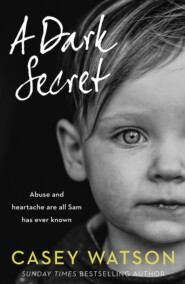По всем вопросам обращайтесь на: info@litportal.ru
(©) 2003-2025.
✖
Moving Fostering Memoirs 2-Book Collection
Настройки чтения
Размер шрифта
Высота строк
Поля
Jenny eyed me sceptically and teased: ‘You would never have taken a back seat, honey, not in a million years. The poor new mummy would have been constantly fending you off.’
I possessed enough self-awareness to recognise that Jenny’s remarks contained grains of truth. Probably it would have been difficult for me to stand back and not offer ‘helpful’ advice but that realisation made her comments prickle all the more.
‘Of course she wouldn’t,’ I protested, a defensive edge to my tone.
Jenny scoffed. ‘Yeah, right! It would have been “Are you sure that nursery is a good idea?” and “I really don’t think they’re old enough to stay with relatives while you swan off for the weekend …”’
The others joined in with a fusillade of quips, bouncing off one another with the ease that only well-meaning friends can, and I soon surrendered, laughing along with them. Despite the mockery, I could sense the flare of fellow feeling among the four of us – I knew that I wasn’t alone in grieving for children lost to me. In their own way, my friends were rallying round in the best way they could – helping me to see that my fostering really shouldn’t ever be about me. What mattered, over and above my own feelings, was the welfare of the children.
If we were honest, each of us drew many personal benefits from the ‘job’. None of us were saints. Besides the immense satisfaction of helping someone, fostering was the perfect antidote to a sense of worthlessness. Since registering I no longer felt quite such a waste of space. And it was also true that foster carers without a sense of humour should find themselves a new career.
‘They only need one mummy, honey,’ Liz said as she leaned over and patted my leg.
Chapter 13 (#u8b0fe4c2-ebf3-57a7-9780-4f35f93aafa6)
On the fourth Saturday after her arrival it was Phoebe’s ninth birthday. We arrived back from the contact session with her parents armed with several large carrier bags full of presents. The hour spent with them had passed pretty much as it had the previous week. Phoebe cuddled up affectionately with her father; her mother largely ignored as she hovered beside them like a spare part, offering presents up to her daughter, who pouted sulkily and snatched them away.
Half of the gifts were still wrapped; she simply hadn’t enough time to work her way through the huge pile, let alone play with any of them. Not that there were any toys, as such. The packages she had managed to open struck me as inappropriate for a young girl; there was lip gloss, jewellery, even expensive clothes, but no actual toys. Where was the Lego, colouring pens or puzzles? I wondered. From her reaction it was clear that Phoebe had little interest in any of it. As soon as we got through the door she asked Jamie if he wanted to go and play in the garden again, leaving the bags in a discarded heap at the bottom of the stairs.
It wasn’t an unusual state of affairs. Most parents overindulged their children with ‘stuff’ when they were in care and I often thought it was a way of easing their guilt. The trouble was, with such an abundance of possessions, the children had little chance of appreciating any of them. No item had special significance to them and not only that, but I had to try and find space to keep it all, which wasn’t easy, especially when several children were in placement.
In my experience, when children were in care long-term, they learnt to expect ‘easy money’ with no concept of its true value. By their teenage years, those who had been in the system for years often ended up materialistically minded, with a deep-seated attitude of entitlement. It was hardly surprising that some children left care at the age of 18 believing that the world owed them a living.
Besides gifts from guilt-ridden relatives, foster carers are given a weekly allowance that must be spent on clothes and toys. From my weekly allowance I was obliged to put aside £10 in savings for Phoebe. She was also given £11.50 a week pocket money to spend on whatever she liked, far more than my own children ever got. On top of that there was a clothes allowance of £22 a week, which she was allowed to spend on items of her choice. For 11–18-year-olds the allowances were even more generous.
While children are in care, their parents’ family allowance isn’t stopped, even though the state pays hundreds of pounds a week to house the children elsewhere. So it was a shock for me to learn, when I first began fostering, that if a child returns home, the savings of £10 a week are paid to their parents as a lump sum, to spend as they see fit.
Fearing the lump sum would be spent on alcohol and drugs, when previous placements have come to an end I have asked for permission to pay the savings in the form of supermarket vouchers, so at least the money might be spent on food for the children, but social workers have always insisted that it is the parents’ right to receive the sum as cash or cheque.
As I lugged Phoebe’s heavy bags upstairs to her room, I pictured myself handing a cheque over to the Steadmans on Phoebe’s return to their large detached home and bristled at the thought. It wasn’t that they were clearly already wealthy, that really was none of my business, but there was something about Robin Steadman that set my teeth on edge. Perhaps it was just that he was a bit too smooth. Whatever my own feelings, it had to be said that he seemed to have developed a much closer relationship with his daughter than his wife had. It was puzzling to see how isolated Phillipa Steadman seemed whenever the family were together.
Halfway through the day I called Jamie and Phoebe in from the garden for lunch, still hardly able to absorb that they were getting on so well. Even more surprising, Phoebe was first to sit at the table and Jamie actually chose to sit next to her, clearly no longer feeling vulnerable to the threat of wet fingers or flying crockery.
Emily took a break from her revision to join us at the dinner table and I noticed that Phoebe seemed to be studying my daughter, watching her take bites of her sandwich as closely as someone who might be tested on the subject later. ‘Can I try some of that?’ Phoebe asked eventually as Emily picked up the next half of her sandwich.
‘Of course you can,’ I shot back quickly, rushing into the kitchen to prepare her a cheese sandwich, cutting it into triangles so it would appear exactly like Emily’s. Racing back to the table, I planted the food straight in front of her, before she had a chance to change her mind. Emily and Jamie stared between the plate and Phoebe with their mouths open, eager to see what she planned to do with a piece of actual solid food.
Having learnt the hard way when Jamie was a toddler that being too keen for a child to eat can put them off, I drew Emily and Jamie’s attention away from her, gaily prattling on about what television series we might start to watch next. We had recently caught up with all available episodes of Lost and had so far failed to find an equally absorbing replacement. They both fired suggestions across the table and I offered one or two of my own, all the while watching Phoebe out of the corner of my eye.
She poked the bread on her plate several times as if suspicious it might be a living organism. Apparently reassured that it wouldn’t grow arms and throttle her she leaned over and took a cautious sniff. Straightening, she pinched the edge of one of the triangles between forefinger and thumb, and plucked off the tiniest piece of bread. Lifting it to her mouth, she tentatively brushed it against her lips and held it there for a long moment, as if in danger of it biting back.
For goodness’ sake, just eat it, I thought, willing her to take the plunge. She did, rolling the bread over in her mouth with the relish of a child being forced to eat cotton wool. There was a pause during which I held my breath, praying she wouldn’t start retching. She glanced around at us but I averted my gaze, suggesting casually to Emily and Jamie that it might be worth giving Grey’s Anatomy a go.
Within ten minutes Phoebe had managed to eat two whole triangles, which amounted to one full slice of bread. Emily, Jamie and I exchanged furtive but exhilarated glances, both of them looking every bit as pleased as I was. It seemed such a momentous event that I was tempted to cheer but restrained myself, instead suggesting we make the most of the continuing sunshine by taking a walk to the park.
Gone was Jamie’s reluctance to join in. He leapt up and asked if he could fetch the scooters from the shed so that he and Phoebe could ride there and back. If ever there was a moment when I wished I had a camera at my fingertips it was then. Phoebe’s face was a picture; she looked so chuffed that my eyes actually filled up. It made me wonder whether she had ever actually had any friends of her own.
After an uneventful and therefore enjoyable trip to the park, we walked back via our local parade of shops. Phoebe stopped short outside the local charity shop, abandoning her scooter on the pavement and standing frozen to the spot, staring into the window. At first I thought she was studying her reflection and expected her to begin remonstrating at any moment, flinging her arms around manically as she had on most of our other trips.
By the time Jamie and I had caught up with her she turned to me with a pleading expression. ‘Could I please buy that, Rosie? With my pocket money?’
That was a pirate’s outfit displayed on a small mannequin in the window. ‘Well, I’m not sure,’ I said, knowing that if we bought second-hand I couldn’t be sure that it was made with fire-retardant material. ‘It’s not new so …’ I went on, but her crestfallen expression stopped me mid-sentence. If Phoebe was my own child I wouldn’t have hesitated but I knew how meticulously the rules had to be followed when caring for Looked After Children.
‘Oh, please, Rosie.’ She looked at me so earnestly that I thought, sod it – we were always being told to treat foster children as we would our own so I wasn’t going to turn her down. How funny, I mused, as we went into the shop and the assistant retrieved the pirate dress from display – Phoebe had four bags of unopened presents in her room and yet fixated on an item that cost £2.50. As it turned out, the dress hadn’t even been worn. All the labels were still attached, confirming that it was originally purchased at Marks & Spencer, which allayed my fears that it might be a rogue item from a dubious source.
Before we reached the gate Phoebe was removing her jumper in her excitement to try the dress on. Minutes later she emerged from the bathroom and performed a twirl, a huge grin plastered on her face.
‘Hmm,’ I said, ‘looking good, but not quite the genuine article yet.’
Her face dropped. ‘Why not?’
‘A-ha, come with me,’ I said, putting on the accent of a pirate. Energised by the improvement in her symptoms, I was pleased to find my playful side was emerging. I loved playing with children, whipping up their capacity for imaginary games. The last few weeks with Phoebe had been so draining that I’d almost forgotten she was still a child who needed to be stimulated.
So excited was Phoebe when we returned to the living room a few minutes later, adorned with one of my sequined scarves around her neck and a purple sash at her waist, that she couldn’t keep still, although it was a general wriggle rather than the peculiar arm flapping/eye rolling routine. Jamie completed her delight by offering her one of his swords. When he suggested they build a camp in the garden I thought she might burst with the excitement of it all.
Although it was a joy to watch the pair as they erected blankets and duvets between the trellis and the horse chestnut tree, charging loudly in and out of their makeshift camp with swords aloft, I couldn’t help but puzzle over yet another swift change in Phoebe’s behaviour. Until now it had been impossible to interest her in any form of imaginative play and yet there she was, playing as if she’d never been any different.
As I poured myself a glass of lemonade and sat on the swing at the bottom of the garden, I was beginning to regret that the placement might soon end. The rest of the day passed quickly and without any tantrums or trying behaviour. At tea time Phoebe was thrilled when my mother made a special visit to wish her ‘Many Happy Returns’ and even ventured to try a few mouthfuls of her own birthday cake. She sat calmly by my side that evening when I read her a bedtime story and as I wished her goodnight the trial of the last few weeks was all but forgotten.
How naive it was, I realised all too soon, to let my guard down so easily.
Chapter 14 (#u8b0fe4c2-ebf3-57a7-9780-4f35f93aafa6)
It was with a renewed sense of enthusiasm that I woke the next morning, surprised to find that Phoebe was still quiet in her room, despite the time. She was usually the first awake and yet it was 6.45am and there was still no sign of her. I was halfway across the kitchen with a full kettle in my hand when a lurching sensation in my stomach stopped me in my tracks.
Instinct drew me back up the stairs. A memory of the recent bloody scene following her self-harming incident advanced my rising panic and I charged into the room without bothering to knock. My breathing gradually returned within safe limits as I scanned the room. There was no horrific smell or bloody sights and Phoebe lay serenely beneath her duvet, although she didn’t look too well. Pale and sickly I can cope with, I thought, before an uncomfortable twist in my stomach nudged another possibility to the forefront of my mind.
‘Phoebe, have you eaten something you shouldn’t, honey?’
Her eyes were wide with hesitancy as she stared back at me, shaking her head.
‘You won’t be in trouble,’ I said, crouching beside her bed in an unconscious gesture of supplication. If she were to trust me enough to tell me what she’d done, she had to understand that I wasn’t going to be angry with her. ‘But I need to know, now. You really don’t look too well.’
She began to cry. ‘I’ve got a tummy ache,’ she croaked in a sickly voice.
Manoeuvring my way through the piles of half-opened presents still spread across the floor, I threw open the curtains and knelt back beside her bed, crouching to get a better look at her. ‘You must tell me what you’ve eaten,’ I said calmly, sunlight highlighting the paleness of her skin.
With effort she propped herself up on one elbow, wincing and clamping a hand to her stomach. She looked about ready to throw up but I didn’t want to encourage that until I found out what it was that lay in her stomach. If it was a harsh substance it might burn her throat on the way back up. ‘Phoebe, tell me,’ I demanded, furious that she’d tried to hurt herself again.
She opened her mouth to speak but closed it again. There was a long hesitation before she finally lifted her free hand and pointed under the bed. Down on all fours, I lowered my head to the carpet and gasped. The space between the floor and the slats of her bed was littered with all sorts of containers. Craning my neck, I stuck my arm in as far as it would go and in a long fanning motion I swept them out so they were spread out on the floor in front of me.
Colour burned my cheeks as I took in the sight. There must have been almost 20 bottles of various shapes and sizes there, some full, others almost empty. ‘Which one was it?’ I asked, no longer able to disguise the urgency in my tone. ‘Tell me!’
Leaning over, she pointed to a half-empty bottle of shampoo.
I snatched it up. ‘This one?’
She nodded as tears rolled down her cheeks.





